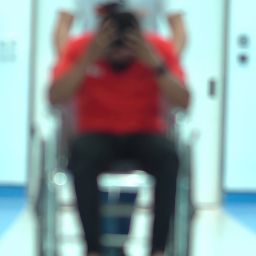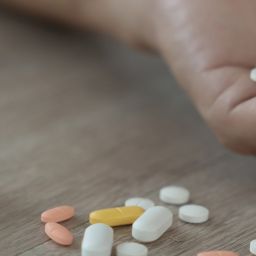Baltimore, a vibrant city steeped in history and culture, also grapples with the harsh realities of substance abuse. From grappling with substance abuse charges to navigating the complexities of Baltimore drug laws, understanding the legal landscape is crucial for anyone impacted by addiction. Substance abuse in Baltimore is not just a personal issue; it’s a community challenge that intersects with legal systems, public health, and social justice. Let’s dive deep into this critical topic, unraveling the realities, legal nuances, and available resources for those struggling with substance use disorder (SUD).
Understanding Substance Use Disorder (SUD)
Substance abuse, often used interchangeably with addiction, is a complex condition characterized by the uncontrolled use of substances despite harmful consequences. The medical term for this condition is Substance Use Disorder (SUD), recognizing it as a chronic brain disease that disrupts normal functioning and behavior. People with SUD often develop a tolerance to the substance, meaning they need increasingly larger amounts to experience the desired effects. Individuals may encounter difficulties when trying to cease consumption, which can include withdrawal symptoms. SUD can have devastating consequences on a person’s health, relationships, and finances.
Baltimore Drug Laws: Possession and Distribution
Maryland, like many states, categorizes controlled substances based on their potential for abuse and medical usefulness. These categories are called “schedules.” Baltimore, as a city within Maryland, generally follows the same classification system. This means that the laws governing the possession and distribution of drugs in Baltimore are largely aligned with the broader framework established by the state of Maryland. Here’s a general breakdown:
- Schedule I & II: These drugs are not approved for medical purposes and show a strong tendency towards misuse. Examples include heroin, cocaine, and LSD. Possession of even small quantities can result in felony charges with significant jail time.
- Schedule III & IV: These drugs have a moderate potential for abuse and some accepted medical uses. Examples include Xanax, Valium, and oxycodone. Possession of these drugs without a prescription can still lead to criminal charges, though typically less severe than Schedule I & II offenses.
- Schedule V: These drugs typically possess a limited potential for misuse and are commonly used for legitimate medical purposes. Examples include cough syrups with codeine. Possession without a prescription may result in misdemeanors or lesser charges.
It’s important to note that these are generalizations, and the specific charges and penalties will depend on the exact circumstances of the case, including the type and quantity of the drug, prior offenses, and intent to distribute.
DUI (Driving Under the Influence) Penalties in Baltimore
Driving under the influence of drugs or alcohol (DUI) is a serious offense in Baltimore, carrying significant legal and social consequences. Operating a motor vehicle while impaired by substances poses a grave danger to the driver, passengers, and other road users. Baltimore law enforcement takes DUI offenses very seriously, and convictions can result in severe penalties, including license suspensions, hefty fines, and even jail time. The impact of a DUI conviction can extend beyond legal repercussions, affecting employment opportunities, insurance rates, and personal relationships. A first-time DUI conviction can result in a variety of serious consequences in Maryland, including:
- Fines: Up to $1,000.
- Jail time: Up to one year.
- License suspension: Up to 180 days.
- Ignition Interlock Device (IID): Mandatory installation in your vehicle for a minimum of 6 months.
- Alcohol Education or Treatment Programs: Court-ordered participation.
- Community Service: Potential requirement.
- Increased Insurance Premiums: Significantly higher rates.
- Loss of Employment or Educational Opportunities: Potential impact on future prospects.
Penalties become increasingly severe for subsequent offenses, potentially including jail time and mandatory ignition interlock devices (IDIs) installed on vehicles.
Substance Abuse Charges: Legal Options
If you are facing substance abuse charges in Baltimore, it’s crucial to seek legal representation from an experienced attorney specializing in drug offenses. Your attorney can advise you of your rights, negotiate with prosecutors, and explore potential defense strategies. Moreover, an experienced attorney can help you navigate the complexities of the legal system and ensure your rights are protected throughout the legal process. They can also assess your individual circumstances and explore potential options for treatment and rehabilitation, which may be beneficial in mitigating the severity of the charges.
The importance of legal representation: Attorney’s Role
- Protecting your rights: Navigating the legal system can be complex, and an attorney can ensure your rights are upheld at every stage of the process.
- Exploring treatment and rehabilitation options: In some cases, treatment and rehabilitation can be a viable option for individuals facing substance abuse charges. An attorney can assess your individual circumstances and explore these possibilities.
In some cases, depending on the severity of the charges and your background, you may be eligible for diversion programs. These programs allow individuals to avoid prosecution by completing court-ordered treatment and rehabilitation. Diversion programs can be a valuable opportunity for individuals to address their substance abuse issues while avoiding the potential consequences of a criminal conviction. Successful completion of a diversion program can often lead to the dismissal of charges, allowing individuals to move forward with their lives.
Key Benefits of Diversion Programs:
- Opportunity to address substance abuse issues: Diversion programs provide a structured environment for individuals to address their substance abuse issues through treatment and rehabilitation.
- Potential for dismissal of charges: Successful completion of a diversion program can lead to the dismissal of charges, allowing individuals to avoid the stigma and consequences of a criminal conviction.
Finding Help for Substance Abuse in Baltimore
Baltimore recognizes the urgent need for support in addressing substance abuse and has established a robust network of resources to assist those struggling with addiction. This network encompasses a wide range of services, including specialized treatment centers offering various levels of care, from intensive inpatient programs to outpatient therapies. Additionally, numerous support groups provide a crucial sense of community and shared experience for individuals seeking recovery. These groups, such as Narcotics Anonymous and Alcoholics Anonymous, offer a safe and supportive environment where individuals can connect with others facing similar challenges, share their experiences, and gain valuable insights and encouragement on their journey towards recovery. Here are some options to consider:
- Treatment Centers: Numerous treatment centers in Baltimore provide various addiction treatment programs, including detox, inpatient, and outpatient options.
- Support Groups: Support groups like Narcotics Anonymous (NA) and Alcoholics Anonymous (AA) offer a safe space for individuals to connect with others facing similar challenges.
- Government Resources: The Baltimore City Health Department and The Maryland Department of Health offer resources and support for individuals and families dealing with addiction.
Seeking Professional Help?
Struggling with drug addiction or substance abuse can feel overwhelming. If you’re facing legal challenges due to addiction, know you’re not alone. Our team of professionals can provide comprehensive support, including addiction treatment, legal guidance, and resources to help you overcome these challenges and rebuild your life. Contact us today for a confidential consultation.
Combating Drug Addiction in Baltimore
Drug addiction remains a significant challenge in Baltimore, affecting individuals across all demographics. Addressing this issue requires collaboration between the legal system, healthcare providers, and community organizations. Moreover, understanding the root causes of addiction, such as poverty, trauma, and lack of access to mental health services, is crucial for developing effective prevention and treatment strategies.
Steps Toward Recovery:
- Access to Treatment: Ensuring availability of affordable and effective treatment options.
- Policy Reform: Advocating for changes in Baltimore drug laws to prioritize rehabilitation.
- Community Engagement: Encouraging collective efforts to support those in recovery.
The fight against drug addiction in Baltimore is ongoing, but progress is possible with a united front.
Conclusion
Substance abuse is a significant issue in Baltimore, with complex legal and social ramifications. Understanding the legal realities associated with drug possession, DUI, and other offenses is crucial for informed decision-making. However, legal consequences should not overshadow the importance of seeking help. Numerous resources are available in Baltimore to support individuals on their path to recovery. Remember, overcoming addiction is a journey, and help is always within reach.








